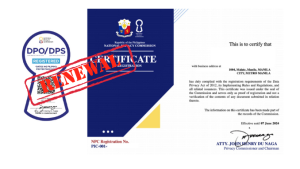If you’re looking to expand globally, a business partner with international expertise can help you navigate new markets and ensure a smoother entry. Equally, hiring a talent with global experience can equip your team with the skills needed to adapt to diverse markets, thus fostering growth and enhancing competitiveness.
Finding the right business partner or hiring international talent, however, comes with big risks. There may be concerns about fraudulent claims regarding experience, qualifications, or business success. False claims about market knowledge or business connections can create barriers in the new regions. Inflated resumes may have an equal negative impact and result in hiring unqualified candidates. Now, to mitigate these risks, comprehensive background checks that go beyond local borders are necessary.
This blog delves into global dataset checks, outlining their purpose, key components, process, and the challenges typically encountered by background check investigators. Read on and tell us in the comments how we can help you with your background check needs.
What is a Global Dataset Check?
A global dataset is a comprehensive collection of information gathered from different sources, countries, and regions around the world. This covers global watchlists, criminal history databases, financial crime logs, and even sanction lists that usually provide a broad view of a candidate’s history across international borders.
In the context of conducting background checks, a Global Dataset Check, also known as a global database check or international data verification, is used to verify a candidate’s personal, professional, and even criminal history by cross-referencing these cross-border datasets. With this check, investigators can deliver background check reports on potential risks associated with partnering or hiring with a candidate.
Purposes of a Global Dataset Check
With a global dataset check, businesses and employers can ensure comprehensive background verification, safeguard their reputation, and make informed decisions when dealing with international candidates or potential partners.
Verifying Background Information and Qualifications
By analyzing global databases, a global dataset checker verifies the personal, professional, and work-related history of a candidate or potential partner across borders and gains a more comprehensive assessment compared to conducting local checks.
Risk Mitigation
With this background check, organizations can identify potential risks associated with a candidate or potential partner by cross-referencing their details with international criminal records, financial crime logs, and watchlists. They can ensure that these individuals do not pose any threat to their safety, security, and integrity.
Protecting Reputation
While most organizations value and protect their reputation, they can prevent associations with individuals who are involved in criminal, unethical, or fraudulent activities and ensure that their workforce and business partners align with their values and ethical standards.
Enhancing Due Diligence
Global dataset checks are essential in due diligence processes, especially for companies expanding internationally or hiring individuals from foreign jurisdictions. These help evaluate potential risks and uncover any hidden issues that may affect business operations or security.
Supporting Informed Decision-Making
A global dataset check empowers organizations with reliable and accurate information to make informed decisions about their hiring, contracting, or forming business partnerships. It offers a well-rounded view of the candidate’s background and streamlines decision-making process.
Key Components of a Global Dataset Check
When conducting a global dataset check, various critical components are examined to ensure a thorough assessment of a candidate’s background. Below are key types of checks usually performed:
Global Watchlist Record Check
This process determines if a candidate is listed on any domestic or international watchlist related to criminal activity or sanctions, such as the FBI’s most wanted lists, Interpol’s alerts, or the OFAC and Department of State sanctions lists.
International Criminal Background Check
This check searches local, national, and international databases to identify any criminal records or offenses, including felonies, misdemeanors, or involvement in organized crime. It ensures the candidate does not pose a security risk to the organization.
Anti-Money Laundering Check
This verification ensures that the candidate or employee has no involvement in illegal financial activities that could potentially harm the organization. It includes reviewing financial transaction records and relevant public registers.
Politically Exposed Persons (PEP) Screening
PEP screening assesses whether a candidate holds or has close ties to a person in a prominent political position. Being a PEP or associated with one may indicate higher risks of bribery, corruption, or unethical practices that could affect the organization’s integrity.
Fraud and Financial Crime Check
This check verifies whether an individual has been involved in financial fraud or criminal activities. It is used for due diligence, risk management, and ensuring the candidate poses no financial threats to the organization.
Sex Offender Registry Check
This check ensures that a candidate or employee is not listed on sex offender registries, both internationally and nationally. It helps protect public safety by identifying individuals who may pose a risk to others.
How We Conduct Global Dataset Checks
We, at FilePino, leverage our advanced technological tools and legal frameworks to access global databases for comprehensive background checks on international candidates. Here’s how we conduct our global dataset checks:
1. Defining Search Criteria and Identifying Relevant Databases
We begin by identifying the relevant geographical regions—whether global or country-specific—and determining the appropriate databases to be searched based on our client’s needs and the candidate’s background.
2. Searching and Cross-Checking Records.
We input the candidate’s identifying information, such as their full name, date of birth, and other relevant details, into the selected databases. This process helps us verify that there are no matches with criminal records or any other concerning information.
3. Examining Results and Verifying Matches
In the event that potential matches are identified, we carefully analyze and investigate these findings to confirm whether they pertain to the same candidate under review. This step is crucial to avoid false positives.
4. Compiling and Submitting Reports
Once all relevant data has been gathered, we compile our findings into a detailed background check report. This report clearly outlines the results, offering our client a good basis for making an informed decision regarding the candidate’s eligibility for the position.
Quick, Easy, and Secure!
with your Background Check in just a few clicks!
Fill out the online order form, make a secure payment via PayPal, and we’ll start the background check right away.
Challenges in Global Dataset Checks
While conducting global dataset checks, various challenges may arise, complicating the process of verifying international candidate backgrounds. These challenges include:
Missing or Incomplete Data
Global databases may lack up-to-date or complete records, making it challenging to fully evaluate a candidate’s background. Missing information can prevent a thorough background check and leave gaps in the verification process.
Data Inconsistency
Inconsistencies across different databases—such as variations in spelling, formatting, or missing details—can lead to confusion or errors during the verification process. These discrepancies can hinder the accuracy of the results.
Legal and Data Privacy Barriers
Different countries have varying laws governing data sharing, which can limit access to certain records. These legal restrictions can complicate the verification process and prevent the acquisition of all necessary information.
Outdated or Delayed Data
Some global databases are not updated regularly, leading to outdated or irrelevant information. This can result in delays or inaccuracies when conducting background checks, especially if the data is critical for decision-making.
Language Barriers
Many global databases are in languages other than the candidate’s native language, which can complicate data interpretation. Language barriers may result in misinterpretation or missed details during the verification process.
Technological Barriers
Certain databases or systems may be restricted or incompatible, creating obstacles in accessing important information. These technological challenges can slow down the verification process and limit the scope of the check.
In today’s globalized world, expanding into new markets and hiring international talent bring big risks. To protect both business and reputation, conducting thorough background checks, such as global dataset checks, is crucial. These checks help verify candidates’ qualifications and professional history, while also mitigating risks tied to fraudulent claims, criminal activity, and unethical behavior. By cross-referencing international databases and sanction lists, businesses can make informed decisions and avoid costly mistakes when hiring or forming partnerships.
… and you might just need our assistance.
FilePino is a trusted leader in background check services in the Philippines. We conduct legally compliant, comprehensive, and fast background checks for a variety of purposes.
Ready to hire our background check investigators for a global dataset check? Set up a consultation with FilePino today! Call us at (02) 8478 5826 (landline) and 0917 892 2337 (mobile) or send an email to info@filepino.com.









